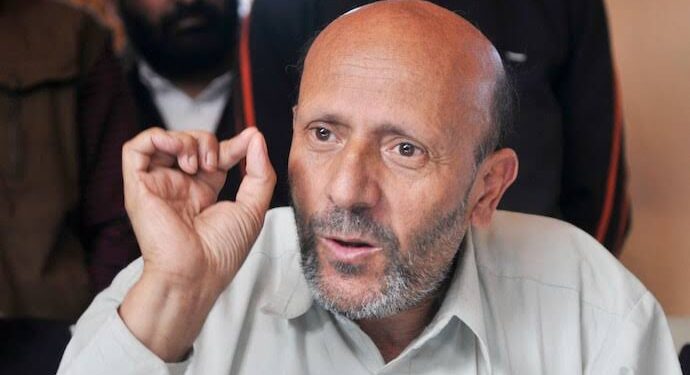DELHI: A Delhi court has directed the National Investigation Agency (NIA) to respond by Friday to an application filed by Sheikh Abdul Rashid, popularly known as Engineer Rasheed, who is seeking interim bail to take his oath as a Member of Parliament. Rashid recently won the Baramulla Lok Sabha constituency in Jammu and Kashmir.
Engineer Rasheed, a former Jammu and Kashmir MLA, has been in Tihar jail since August 2019. He was arrested in a 2016 terror funding case and charged under the Unlawful Activities (Prevention) Act (UAPA). His name surfaced during the investigation into Kashmiri businessman Zahoor Watali, who was accused of financing terrorist organizations and separatist groups in Kashmir.
In his plea presented to Additional Sessions Judge Chander Jit Singh on June 4, Rasheed requested either interim bail or custody parole to assume his new parliamentary duties. The NIA, which was initially asked to respond by Thursday, requested additional time to file its reply.
Rasheed’s lawyer, Vikhyat Oberoi, emphasised the need for his client to take the oath and fulfil other parliamentary responsibilities. Rasheed’s campaign, which led to his victory over former Jammu and Kashmir Chief Minister Omar Abdullah by over 200,000 votes, was managed by his sons Abrar and Asrar Rashid.
The recent Lok Sabha elections resulted in a unique scenario where two candidates currently imprisoned on terror-related charges won seats. Besides Rasheed, pro-Khalistan activist Amritpal Singh won from Punjab’s Khadoor Sahib seat. Singh was detained in April 2023 under the National Security Act and is in Dibrugarh prison in Assam.
The case against Rasheed is part of a larger investigation that implicated several individuals, including Kashmiri separatist leader Yasin Malik, who was sentenced to life imprisonment in 2022 after pleading guilty to the charges, banned Lashkar-e-Taiba founder Hafiz Saeed, and Hizbul Mujahideen chief Syed Salahuddin.
Legal experts, including former Lok Sabha secretary-general PDT Achari, have pointed out the constitutional provisions allowing elected MPs to take their oaths despite being in prison. Achari cited Article 101(4) of the Constitution, which deals with the absence of members from Parliament without prior sanction.
Following their oath-taking, both Rasheed and Singh would need to inform the Speaker of their inability to attend parliamentary proceedings due to their imprisonment. The Speaker would then refer their requests to the House Committee on Absence of Members, which would make a recommendation to the House.
However, if convicted and sentenced to a minimum of two years in prison, Rashid and Singh would lose their parliamentary seats immediately, according to a 2013 Supreme Court judgment that invalidated Section 8(4) of the Representation of the People Act, which had allowed convicted MPs and MLAs three months to appeal against their convictions.
The court’s decision on Rasheed’s application for interim bail or custody parole is awaited, with implications for both his political career and the functioning of the newly elected Lok Sabha.





















